OPINION
Multi-polar world: Why the current crisis is bringing India and Russia even closer
Published
2 years agoon

‘Eternal friendship’ may not exist in foreign policy, but the two countries can join forces for mutual benefit
The Ukraine crisis has exposed a dramatic shift in the structure of international relations. This manifests itself in the acceleration of Russia’s shift towards Asia and in the divergence of interests between major powers.
The breakdown is a symptom of a more fundamental process: A rift in mutual understanding. Something that is not a phenomenon restricted to the current year.
Although we can hardly determine the commencement date – due to its blurred and volatile nature – the symptoms are visible. Sanctions policies, trade wars, controversies around Covid-19, protectionism, Iran and North Korea’s nuclear issues, and the US withdrawal from Afghanistan are just a few examples of a world in a state of turmoil.
The current crisis has only accelerated the widening gap and the growing misunderstanding. The new landscape necessitates a certain self-reflection and a reassessment of the values and principles of cooperation on different levels. At least this is how it seems from Moscow.
However, the fact that similar signals are visible in other parts of the world is suggestive that the issues of reconfiguration are very relevant. This situation was well reflected by Indian External Affairs Minister Subrahmanyam Jaishankar on the sidelines of the Raisina Dialogue.
While countering criticism over New Delhi’s stance, he emphasized that the current crisis could be a “wake-up call” for Europe to also look at things that have been happening in Asia for ten years. This is a reflection to the state of somnambulism which is characterized by neglecting the crises in Asia and misunderstanding the national interests of the Global South.
For example, it is now shown that the position of Western countries towards India amounts to “you are either with us, or against us.” Such a stance looks especially unfounded, given that for the first two months of the Ukrainian crisis the EU countries accounted for more than 70% of Russian fossil fuels exports, and the share of the US imports surpasses India’s. Moreover, it seems that Western attitudes show a lack of understanding of India’s role in the international arena and the history of the country’s development.
EU wants to tap India’s tech potential
After gaining its independence, the political culture of India was based on three pillars: The quest for a bigger political and economic status, the principle of neutrality, and the attempts to take and extend its moral stance as a voice of the post-colonial world whenever possible. The balanced policy stance was clearly marked by Jawaharlal Nehru even before the country’s independence and eventually macro-objectives of this foreign policy became a matter of national consensus.
On the international stage, this attitude was institutionalized in the Non-Aligned movement and, after the collapse of the bi-polar system, was modified in “multi-alignment.” Indeed, India’s policy from time to time showed some convergence with the USA and the USSR but it endeavored to counterbalance the positions of the countries. Notwithstanding conceptual modifications, the essence of the foreign policy remained intact: India is pursuing its well-balanced position and explicitly expresses the interests of developing countries. In general, this policy safeguarded functional, co-existential, and existential national interests of the country at that time.
The core of the functional aspect is durable economic growth that was firstly oriented on the domestic market. At the end of the century, reforms on liberalization added an external dimension to this element. Despite some socio-economic obstacles, the results for now are obvious: India has become one of the major economic powers.
The developmental pattern can be expressed as an interplay between the principles and interests of India’s national policy. For many in India, America’s policy was considered harmful towards the three above-mentioned dimensions. The chaotic withdrawal from Afghanistan and a difficult-to-predict sanctions policy towards Iran from two successive administrations are clear examples. Despite the fact that India and the US tried to calibrate their positions on Chabahar port and oil imports, the restrictions imposed added a factor of uncertainty, which halted economic and connectivity cooperation and hurt energy security, which is a matter of high relevance to India’s economy.
Due to the fact that the current crisis does not send signals of attempts to reach mutual understanding, the only way to reassess the values is to find new goal-oriented ways and sources of cooperation. This would also be true for Russia, which is seeking Asian directions for economic interaction. It may also refer to India, which will receive political and economic benefits by being a mediator between the countries and gaining financial benefits from more lucrative deals and an increased role as an economic hub.
One of the key areas of time-tested cooperation between Russia and India is a military sphere which has endured the test of time. For example, India’s military imports were a lifeline for the Russian sector after the collapse of the Soviet Union. But due to the fact that the overall commodities turnover is about $12 billion and contributes only 1.3% of the total trade, there is still room for improvement.
How India balanced all sides in the Russia-West conflict
Agriculture
Despite low dependence on agriculture imports, which is declining due to growing domestic production, Russia traditionally plays an important role in India’s access to edible oil and fertilizers. At the same time, the Russian Federation understands that with the course of the crisis, India is taking a more export-oriented position. This does not necessarily mean a conflict of interests.
First of all, despite rather large grain reserves, the country is not immune to climate anomalies, especially heat waves, cyclones and floods. Secondly, domestic consumption will ensure the need for grains, oil, fodder (given the extensive growth of livestock) and other products in a mid-term perspective. Low-price transactions make this field of cooperation even more attractive. Thirdly, mutually beneficial partnership can be extended to other countries where there is a huge need to ensure food security. For example, in the case of Bangladesh, it will help to “mitigate” occasional tensions with India over migration.
Energy cooperation
India is now pursuing energy transition initiatives that aim to increase the proportion of renewables. The key aspect here is the government’s commitment to ensure the country’s energy security, while the role of conventional sources of energy won’t be subject to a sharp decline. In this regard, Russia can become a profitable partner in the case of coal, gas and oil supplies. Such cooperation would avoid external risks, which partly caused last year’s coal crisis and energy shortage in certain states, yielding the possibility of a discount deal that would bring financial profits.
A one dollar increase in the cost of a barrel of oil would take from the national budget more than one billion dollars. That is why India has placed orders on Russian oil that amounted to twice as much as it purchased in 2021 and is now increasing the share in the Sakhalin-1 project. Moreover, taking into account the smooth increase of gas shares which is supported by initiatives like “One Nation, One Gas Grid” – collaboration in the energy sector is highly beneficial for both sides.
What often remains outside is that Russia can provide support for India’s energy transition initiatives. Firstly, the construction of small hydro stations in Uttarakhand, Arunachal-Pradesh, Himachal-Pradesh, Jammu and Kashmir will help to eliminate energy shortages. Secondly, joint works in the sphere of nuclear power proved to be effective not only in India, but also in other countries – look at Rooppur Power Plant as an example. The relevance of energy multilateral regional projects (like Nepal-Bhutan-Bangladesh) will only increase.
Connectivity projects
Many bilateral projects will require a boost in logistical infrastructure. For a long time, cooperation between India and Russia in the field of connectivity progressed very gently. Now, they are being put high on the agenda. First of all, the development of the North-South and Chennai-Vladivostok transport corridors are being updated and the joint implementation of them will ensure higher stability of supplies. Russia is now intensifying negotiations with Iran, the country that can be a “fulcrum” for many trade items. This will not only benefit the infrastructural development of Russian regions and increase bilateral trade. It can also become India’s gate to Central Asia, which is part of the “extended neighborhood.”
However, the level of India’s trade there lags far behind not only the indicators of Russia and China. It is also far behind trade levels with other parts of the neighborhood. Bilateral trade with the Gulf Cooperation Council (GCC) and the Association of Southeast Asian Nations (ASEAN) each account for more than 11 per cent of India’s total trade.
Meanwhile, the trade level with Central Asia is more than 50 times lower.
In theory, this project will increase India’s position in the region and may become a “counter balance” to China’s active economic policy, which is largely a cause for concern for the leaders of the Central Asian countries. What is also important is that the INSTC will be an alternative route to Europe with which India has recently signed a connectivity partnership agreement and which is also highly dependent on Chinese goods.
India defies Western pressure to stop Russia trade
With the increased focus on the Indo-Pacific, the Chennai-Vladivostok maritime corridor is also becoming very important. India does not see this conceptual framework as a strategy or as a club of limited members. The country is seeking to prevent any single power from dominating the region or its waterways. Thus there is a possibility to boost connectivity projects in order to increase bilateral trade and the roles of India and Russia in the region. Simultaneously, if India can be an alternative in Central Asia, Russia’s increased role can also be positively perceived in South-East Asia.
In fact, the potential for cooperation is not limited to the above areas and can be realized in areas ranging from heavy industry to disaster-resilience infrastructure and smart city initiatives. The Russian position was well expressed by Foreign Minister Sergey Lavrov to India Today. “With India, we supported Prime Minister Narendra Modi’s concept of ‘Make in India’. We started substituting the simple trade with local production, shifting production of the goods needed by India on their territory,” he said.
In conclusion, in difficult times, the ability to find common interests and develop mutually-beneficial practice-oriented projects is particularly pertinent. This is how friendship is tested.
At the same time, the Russian government understands that India will pursue its own national interests and “eternal friendship” does not exist in foreign policy. If earlier relations between countries were not always supposed to have a strong economic foundation, now things are changing. The Soviet-India strategic partnership arose because the countries had sought to find common interests.
Nowadays, economic relations have become more relevant and the countries need to rediscover points of common interest in the economic sphere and develop particular models of cooperation. In order for them to become the hallmark of India-Russia cooperation, there is a huge need for political will from both sides, which derives from the history of our friendship and the principle of mutual respect.
OPINION
Disgraced ex-PM Liz Truss seeks to ruin any hopes for normal UK-China ties
Published
1 year agoon
May 18, 2023
The former premier’s Taiwan trip is nothing but a provocation for Beijing to lash out at London, sinking any constructive dialogue
Liz Truss will always be remembered as a disastrous prime minister who spent only a month in office and was outlasted by a head of lettuce.
Her disastrous budget plans sent shudders through the UK economy, eliciting criticism from the British people, MPs and foreign leaders alike. Her ideology-driven political decisions found little sympathy with the public, which repaid her with abysmal approval ratings.
You’d think someone like that would have little credibility as a political adviser, but that apparently isn’t the case. Taiwan, which frequently pays washed-up Western right-wing fanatics to come and visit them as a political stunt, invited Liz Truss to Taipei on Tuesday and Wednesday.
Truss then gave a hawkish speech where she called for an end to all cooperation and dialogue with Beijing and the preparation of Russia-style sanctions in the event of a Taiwan conflict. She also repeated her suggestion of an “Economic NATO” – despite a track record that makes her the last person you’d want to listen to for economic advice.
‘Economic NATO’ needed to counter China – Truss
Since her brief stay in Downing Street, she has rebranded herself as a full-time anti-China hawk, and now uses her party position and credentials as a former prime minister to try to undermine her successor’s attempts to carefully edge back towards engagement with China. Truss was always a fantasist, a pro-Brexit zealot who embraced a confrontational stance during her time as foreign secretary.
However, as you can imagine, all you need to do to reinvent yourself these days is to become a China basher. It doesn’t matter how much of a joke you otherwise might be. Hence, the UK media made sure that her stay and words in Taiwan were given widespread coverage without the context of her political failures. The UK government has already distanced itself from her trip – a fact that Beijing should take careful notice of (and no doubt has).
The British Conservative Party has always been rife with that sort of factionalism. While the opposition Labour Party tends to hard-line suppress the more ideological wing of its MPs (hence the purge of the left-wing Corbynite faction), Tory ideologues have long held power as a “disruptive” force on the government itself, undermining its foreign policy. It’s a fracture which emerged during the Margaret Thatcher era, where following the breakdown of the “post-war consensus” of economic pragmatism, ideology gained ascendency in the party and soon manifested into Euroscepticism.
This tug of war lasted 30 years, making it harder for Conservative prime ministers to maintain a working relationship with the EU, and eventually culminating in Brexit itself. Once that was out of the way, these ideologues found a new target: China. While Truss has opportunistically jumped on this bandwagon, former arch-Brexiter Iain Duncan Smith had already made himself the UK’s Sinophobe-in-chief. Their common goal is simply to undermine stable ties with Beijing and provoke conflict by spurring on backbench rebellions, making them a challenge for the government to handle.
Taiwan predicts timeline for conflict with China
Consequently, while Truss may be a national laughingstock thanks to her disastrous tenure as prime minister, this new role she is taking on enables her to cause disruption on this issue. Taiwan, of course, knows this, because its entire foreign policy is premised on trying to undermine the ties of other countries’ relationships with Beijing by spending large amounts of money on inviting figures such as Truss. The timing of the trip was deliberate, coming immediately after the British foreign secretary’s engagement with a senior Chinese official following the coronation of King Charles III.
Taipei hopes that Beijing’s backlash over the Truss visit will target the UK government as a whole and punish the country. China has a record for being abrasive like this, having done so with the Czech Republic in the past and not winning any friends there as a result. If Truss is therefore allowed to dictate the flow of UK-China relations, she wins. Besides her, the UK has never been provocative on Taiwan at a senior level such as with former Speaker of the House Nancy Pelosi’s visit last year for the US.
Thus, rather than causing a crisis, China should wait until the upcoming Taiwan elections take place and hope that the more pro-China Kuomintang Party (KMT), which once governed the whole country, will take power and stabilize cross-strait ties again. The Democratic Progressive Party (DPP) thrives off creating crises, as does the US with its military deployments, and amidst it all there is no intention for cool heads to prevail. While Pelosi was a blatant violation and huge provocation of the One China policy and US commitment to it, the Truss trip is an opportunistic PR stunt by a washed-up has-been who almost ran her country into the ground in a month. Ignore, move on and forget.
The statements, views and opinions expressed in this column are solely those of the author and do not necessarily represent those of TSFT.
You can share this story on social media:
PLEASANT MUSIC FOR YOUR CAFE, BAR, RESTAURANT, SWEET SHOP, HOME
SUITABLE MUSIC FOR YOGA LOVERS
OPINION
India facing challenge to steer SCO agenda away from Western-dominated frameworks
Published
1 year agoon
May 17, 2023
The Shanghai Cooperation Organisation is looking at ways to address the most pressing global issues without being a disruptive influence
The upcoming Shanghai Cooperation Organization (SCO) summit promises to be a watershed moment in the bloc’s history, coming amid unprecedented global challenges and new, emergent tensions.
While the SCO Foreign Ministers meeting, which took place on May 4 and 5, was tasked with preparing the agenda for the July 3-4 summit in New Delhi, there is still much work to do to ensure that India’s chairmanship will be a success.
The West has broken virtually all links with Russia because of the Ukraine conflict. Western sanctions against Russia are unprecedented in scope, carrying significant ramifications also for the developing world, including the economic disruptions caused by the weaponization of the US dollar. The European security architecture is in tatters. For the West to seek Russia’s strategic defeat while the country possesses formidable military and material resources makes no sense. Risking a potential nuclear conflict in particular is totally irresponsible.
The European Union has lost its already limited capacity to play an independent role, especially with Germany losing clout and Brussels appropriating more power. The doors of dialogue and diplomacy are being kept closed as NATO seeks military advantage over Russia, and uses Ukraine as a proxy.
At the other end of Eurasia, US-China tensions are rising over Taiwan, regional maritime disputes, strengthening of US-centered regional alliances and NATO overtures to Japan and South Korea. The US and the EU are warning China against supplying lethal arms to Russia under pain of sanctions, even as they seek China’s support in persuading Russia to end its military intervention in Ukraine, and this in the background of the high-level dialogue between the US and China having virtually broken down.
Can Eurasia’s rising political bloc show a united front against the West’s encroachment?
Both Russia and China, the principal pillars of the SCO, are at loggerheads with the West to different degrees, and the summit agenda will inevitably reflect this reality. The SCO represents a building block of multipolarity within the global system at the political, economic and security levels, a goal reiterated at the Foreign Ministers’ meeting.
While the other SCO members have robust links to both Russia and China, their connections with India are not as strong, despite mutual goodwill and shared interests. This is largely due to a lack of contiguity and direct access to Central Asia. With Iran and Belarus joining as full members, the SCO will achieve greater Eurasian depth. Both of these countries have been politically and economically targeted by the West. The SCO Foreign Ministers meeting also agreed on May 5 to grant dialogue partner status to Kuwait, the Maldives, Myanmar and the UAE, in addition to the nine existing dialogue partners. The growing interest demonstrates the appeal of the SCO as a grouping of non-Western countries that provide an alternative platform for nations to pursue their interests outside the Western-dominated international system.
Association with the SCO increases their margin to maneuver, primarily at the political and economic levels. Diplomatic support, hedging against Western sanctions, access to non-Western development banks, benefits from connectivity projects and infrastructure development, cooperation against terrorism, extremism and separatism, are obvious advantages.
India has taken its current presidency of the SCO seriously, organizing and hosting more than 100 meetings and events, including 15 ministerial level meetings. Indian Foreign Minister Subrahmanyam Jaishankar has also stressed the great importance for India of developing multifaceted cooperation. He introduced the term ‘SECURE’ SCO on the basis of Security, Economic Development, Connectivity, Unity, Respect of sovereignty and territorial integrity, and Environmental protection.
As SCO Chair, India initiated an unprecedented engagement with the organization’s Observers and Dialogue Partners by inviting them to participate in more than 14 socio-cultural events. Many of the events hosted by India occurred for the first time in the framework of the SCO, such as the Millet Food Festival, Film Festival, Cultural Festival, the Tourism Mart, and Conference on Shared Buddhist Heritage.
Moscow Region representatives conduct roadshows to entice Delhi and Mumbai investors
Jaishankar noted that as a result of the Covid-19 pandemic and geopolitical upheavals, global supply chains had been disrupted, leading to a serious impact on delivering energy, food, and fertilizers to developing nations. He viewed these challenges as an opportunity for SCO members to address them collaboratively, noting that with more than 40% of the world’s population within the SCO, its collective decisions would surely have a global impact.
Additionally, Jaishankar highlighted the unabated menace of terrorism, and that combating it was one of the original mandates of the SCO. He drew attention to the unfolding situation in Afghanistan where the immediate priorities included providing humanitarian assistance, ensuring a truly inclusive and representative government, combating terrorism and drug trafficking and preserving the rights of women, children and minorities. This was echoed by the Chinese foreign minister.
India expressed its willingness to share its expertise and experience in the field of startups having helped cultivate over 70,000, more than 100 of which were ‘unicorns’. Last year, it proposed the creation of a Startups and Innovation working groups as well as one focused on traditional medicines, and the SCO meeting approved plans to operationalize these initiatives.
India believes that the SCO should look at reform and modernization to keep the organization relevant in a rapidly transforming world, and noted that discussions on these issues had already commenced. It also sought support for its long-standing demand to make English the SCO’s third official language, as this would enable a deeper engagement with English-speaking members and would take the SCO’s work to a global audience.
India also proposed the New Delhi Declaration as an SCO Summit Declaration at the meeting, as well as four other thematic joint statements on cooperation in de-radicalization strategies, promotion of millets, sustainable lifestyles to address climate change and digital transformation. India sought support for a timely finalization of these documents for approval at the SCO Summit.
Indian delegation wraps up successful business tour in Russia
According to Chinese Foreign Minister Qin Gang, all participating parties considered the SCO as an important platform for joint combat against terrorism, separatism, drug trafficking, as well as cyber crimes. All favored more cooperation in such fields as transportation, energy, finance, investment, trade, the digital economy, regional connectivity, deeper cultural and people-to-people exchanges, environmental protection, climate change, sustainable development, and SCO’s strengthened cooperation with the United Nations and BRICS countries.
The meeting also offered the gathered foreign ministers an opportunity for intense bilateral meetings. For example, Russian Foreign Minister Lavrov met his Chinese counterpart to discuss the implementation of agreements reached between Vladimir Putin and Xi Jinping in March.
The SCO continues to enlarge its footprint, widen its agenda, and carve out a non-Western space in the international system, but some key points of friction remain between members especially China and India. The two countries are currently embroiled in a border dispute that has yet to be settled. Additionally, India stands in opposition to China’s Belt and Road Initiative due to India’s concerns about connected sovereignty issues.
The other, less important fault line, is India-Pakistan relations. Pakistan’s Foreign Minister Bhutto Zardari did not help matters by making indirect jibes at India during his speech at the SCO meeting and further criticism of New Delhi in his interviews to the media. His comments elicited a sharp response by the Indian Foreign Minister, but only after the SCO meeting was completed. Pakistan is currently in the throes of a major internal crisis, which may affect its participation in the SCO summit. However, India-Pakistan differences are not germane to the SCO’s growing stature. Far more important is the Russia-India-China triangle.
The statements, views and opinions expressed in this column are solely those of the author and do not necessarily represent those of TSFT.
You can share this story on social media:
PLEASANT MUSIC FOR YOUR CAFE, BAR, RESTAURANT, SWEET SHOP, HOME
SUITABLE MUSIC FOR YOGA LOVERS

Rome is considering leaving the Belt and Road Initiative in a move which will place virtue signaling to other Western states above its own interests
Italy’s membership of China’s Belt and Road Initiative (BRI) is up for renewal at the end of this year, and Western media outlets are speculating that Rome may choose to leave the pact.
Italy became the first and only G7 nation to join China’s multi-billion-dollar infrastructure vision, signing a memorandum of understanding (MoU) just before a tidal wave of anti-China sentiment was unleashed on the world. Indeed, the country’s leadership was in a very different place then, with Italy being led by Giuseppe Conte of the Five Star Movement, whose populism faulted the Euro-Atlantic establishment for decimating the Italian economy through the 2008 debt crisis and the brutal austerity measures which followed. It is little wonder that Italy had decided to look eastwards.
Even 15 years on from the events of 2008, Italy’s economy still has not fully recovered. It was worth $2.4 trillion at the end of that year, but is only at $2.1 trillion now, and barely growing at all. New and concurrent economic crises have taken a toll. Italy’s current leadership no longer believes all roads lead to Rome, let alone to China’s modern-day Silk Road – rather, they lead to Washington. As pressure on the country has grown, its successive leaders, Mario Draghi and Giorgia Meloni, have sought to reset its foreign policy back to transatlantic-oriented goals, ending its rebellion against the establishment and thus contemplating quitting China’s grand initiative.
Italy may exit ‘New Silk Road’ – FT
Oddly enough, the truth remains that it is the EU and US that stand as the biggest threat to Italy’s prosperity, not China. While dumping the BRI will receive plaudits from the US-dominated commentary circles in these countries, the reality is that they offer no alternative, no plans, and no incentives to make Italy a wealthier country. It is the “sick man” of the G7, an advanced economy that has increasingly lost its competitiveness, but also one that has been thrust into decline by being a southern EU country and a net loser of Eurozone policies.
It is precisely because of the economic upheavals that the country has faced over the past 15 years and widespread political dissatisfaction, that radical and populist politics have gained ground. China was rightfully seen as an alternative, a country that could rapidly expand Italy’s exports and invest in crumbling public infrastructure. However, this has quickly become politically incorrect. Italy’s leaders argue that BRI participation has been a waste of time. However, the reality is that when Eurocrat Mario Draghi came to office, he sought to reset Italy’s foreign policy and began using new “golden powers” to veto and cancel Chinese investments in Italy on a large scale. In 2021 alone, he blocked three Chinese takeovers, including a seed and vegetable producer.
Following Draghi, Giorgia Meloni, despite her outward populism, has been even more prone to pledging Rome’s loyalty to the transatlantic cause, having decided to become vocal in support of Ukraine in its conflict with Russia and even visit Kiev. At this stage, it is very little surprise that her country is contemplating canceling participation in the BRI, something which can score political points and help dispel doubts about her loyalty to Brussels and Washington. Predictably, the mainstream media narrative readily depicts the BRI in predatory and malign terms, ignoring the obvious empirical truth that it is the EU that has saddled Italy with a national debt larger than its GDP, and not China. Of course, there is no alternative scheme or plan for Italy on offer should it leave the BRI, meaning it is cutting its nose off to spite its face.
EU defenseless against China – Berlusconi
By forfeiting its BRI membership, Italy will undoubtedly lose the opportunity to massively enhance its trade competitiveness, namely by opting out of projects such as Chinese-owned ports and railway links. As an example of this, Greece, to the southeast, has positioned itself as a “gateway to Europe” through Chinese ownership of Pireaus port and its connecting railways, which allows cargo to go up through the Suez Canal into the Mediterranean, into the port and then across Europe. Italy could have competed for a share of this, but it has chosen not to, and it’s not like it will be selling anything additional to the US with its protectionist “America first” policies, is it?
In doing so, Italy has chosen to stop being a leader pursuing its own path in the world to better strengthen its global clout, but instead to be a follower, to play second fiddle to the transatlantic establishment which doesn’t see it as a particularly prominent partner to begin with. Italy joined the BRI precisely because it was sick of being a “rule taker” from Brussels, in a similar vein to what Greece has experienced. Now it appears happy again to hold up the political orthodoxy of the elitist, US-led G7. In doing so, it can kiss goodbye any hopes of becoming a powerful and influential country again anytime soon. Italy is admired mostly for its past, as opposed to what it offers to the world presently, and if its current leadership has its way, that will likely remain the case.
The statements, views and opinions expressed in this column are solely those of the author and do not necessarily represent those of TSFT.
You can share this story on social media:
PLEASANT MUSIC FOR YOUR CAFE, BAR, RESTAURANT, SWEET SHOP, HOME
SUITABLE MUSIC FOR YOGA LOVERS



Global debt balloons to record highs

German military to sell tons of toilet paper

First female Saudi astronaut heads to space

Nigeria takes step to combat fuel shortages

US will default if debt deal fails – treasury secretary

Village People demand Trump stop using their music

Hollywood star pulls out of hosting awards show amid strike

Rock icon slams German authorities

Agatha Christie novels chopped by ‘sensitivity readers’ – media

Marvel star back in training after breaking over 30 bones

Turkish minister escapes fire blast (VIDEO)

Trump savages pop star’s Super Bowl performance

Alec Baldwin sued by Ukrainian family of slain cinematographer

Duran Duran stumbles, Dolly Parton rolls into Rock Hall

Sweden probes possible plot behind Russian pipeline leaks

FINANCE


Global debt balloons to record highs
It’s now $45 trillion higher than its pre-pandemic level and is expected to continue growing rapidly, a top trade body...


Nigeria takes step to combat fuel shortages
The West African country has built a giant oil refinery to cover domestic demand Nigeria will commission its new Dangote...
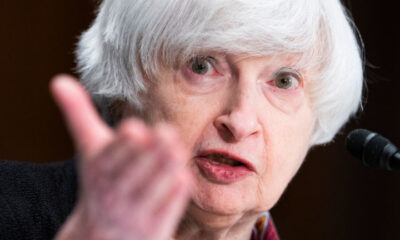

US will default if debt deal fails – treasury secretary
The current borrowing limit is a constraint on Washington’s ability to meet its obligations, Janet Yellen insists America’s chances of...


Facebook parent Meta fined €1.2 billion by Irish watchdog
The American tech company has been accused of violating EU data privacy rules US tech giant Meta has been hit...


UK’s business with sanctioned country booming
Trade between Britain and Iran has reached the highest level in a decade, according to official data, apparently having been...

POLITICS


Erdogan election defeat would be ‘revenge’ – Syrian Kurds
The YPG claims the Turkish president failing to win another term would be payback for Ankara’s counter-terrorism operations in Syria...


Chinese special envoy meets with Zelensky
Li Hui visited Kiev to share Beijing’s views on a political settlement to the Ukraine crisis Ukrainian President Vladimir Zelensky...


Pakistan’s top court orders release of former PM Imran Khan
Pakistan’s Supreme Court has ordered the release of former prime minister Imran Khan, whose arrest earlier this week triggered deadly...


Kamala Harris to run AI taskforce
The US vice president will ask AI execs to evaluate the safety and fairness of their models US Vice President...
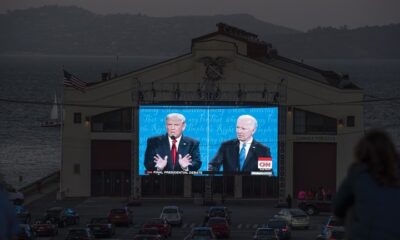

Most Americans want to move on from Biden and Trump – poll
70% of respondents said the incumbent shouldn’t bid for office in 2024, with that figure 60% for the Republican former...

OPINION


Disgraced ex-PM Liz Truss seeks to ruin any hopes for normal UK-China ties
The former premier’s Taiwan trip is nothing but a provocation for Beijing to lash out at London, sinking any constructive...


India facing challenge to steer SCO agenda away from Western-dominated frameworks
The Shanghai Cooperation Organisation is looking at ways to address the most pressing global issues without being a disruptive influence...


China isn’t the biggest threat to Italy’s prosperity
Rome is considering leaving the Belt and Road Initiative in a move which will place virtue signaling to other Western...


Meet the Czech lawyer who rallies thousands to shake up the EU establishment
In mid-April, a fledgling political party that recently formed in the Czech Republic called Pravo Respekt Odbornost (Law Respect Expertise;...


UK shows signs of good will to China, but it’s not the one calling the shots in this relationship
The British foreign secretary says antagonizing Beijing goes against London’s ‘national interests’, but Washington has other ideas British Foreign Secretary...

LIFE


conic Smiths bassist dies aged 59
The bassist with legendary English rock band The Smiths, Andy Rourke, has died at the age of 59, the group’s...


Village People demand Trump stop using their music
A viral video emerged last week of Donald Trump dancing to a Village People song at his Florida estate Village...


Hollywood star pulls out of hosting awards show amid strike
Drew Barrymore is stepping down as host of this year’s MTV Movie & Music Awards, due to be held on...
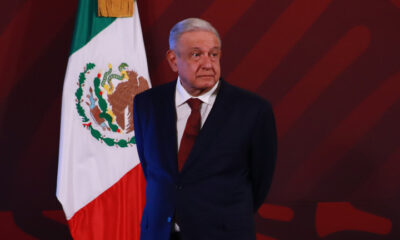

Mexico condemns US ‘interference’ in drug war
The DEA’s infiltration of the Sinaloa Cartel without state permission amounts to espionage, the Mexican president says Mexican President Andres...


Rock icon slams German authorities
Pink Floyd co-founder Roger Waters criticized the city of Frankfurt for canceling his concert and vowed to take legal action...



Trending
-

 FINANCE12 months ago
FINANCE12 months agoFacebook parent Meta fined €1.2 billion by Irish watchdog
-

 LIFE12 months ago
LIFE12 months agoconic Smiths bassist dies aged 59
-
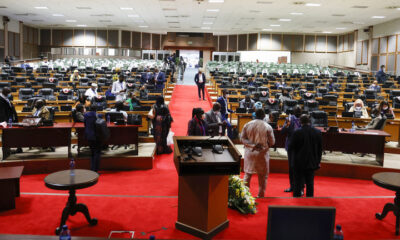
 NEWS12 months ago
NEWS12 months agoKenya supports creation of pan-African court
-

 FINANCE12 months ago
FINANCE12 months agoUS will default if debt deal fails – treasury secretary
-

 FINANCE12 months ago
FINANCE12 months agoGlobal debt balloons to record highs
-
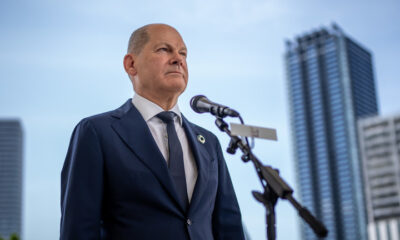
 WAR12 months ago
WAR12 months agoUkraine won’t join NATO anytime soon – Scholz
-

 NEWS12 months ago
NEWS12 months ago‘Subway killer’ Daniel Penny’s actions expose a gap in US law enforcement
-

 NEWS12 months ago
NEWS12 months agoGerman military to sell tons of toilet paper



